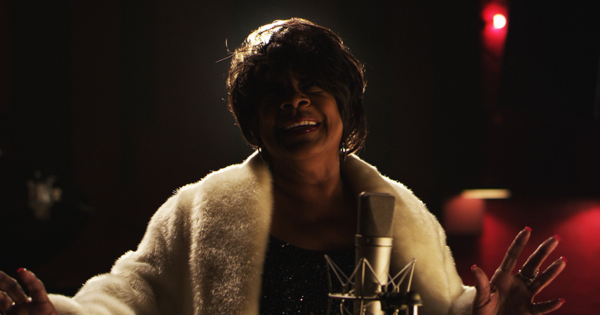Movie review by Greg Carlson
An engrossing and thoughtful look at the backup singers whose voices grace some of the most familiar recordings of popular music, “Twenty Feet from Stardom” is certainly a must-see for rock fans. Tracing the enormous and all too often unheralded contributions of the supremely talented vocalists whose job requirement more or less demands a kind of selfless anonymity, director Morgan Neville’s documentary opens up a conversation on the mysterious alchemy of stardom and the painful realities of a cold-blooded industry. Colorfully supported with vintage film and video footage, archival photographs, and interviews with the likes of Stevie Wonder, Bruce Springsteen, Mick Jagger, and Sting, “Twenty Feet from Stardom” shines a light on a segment of the music world long overdue for just this kind of consideration.
With the possible exception of 2011 Rock and Roll Hall of Fame inductee Darlene Love, the incomparable voice cruelly exploited by Phil Spector, most of the singers profiled by Neville are unknown to a general audience. Along with Love, the performers who receive the most screen time include Merry Clayton, Claudia Lennear, Lisa Fischer, and Judith Hill, although Neville includes many more figures whose individual tales could easily support entire films of their own. “Twenty Feet from Stardom” makes the case that any one of these women could have – or should have – achieved the stratospheric levels of adoration and compensation enjoyed by the rock stars they complement, but as Sting points out, there is no way to figure the luck and timing and fortune that smile on some and ignore others, regardless of talent.
In a document filled with lore and legend, no anecdote is more potent than the story of Merry Clayton receiving an invitation to a late night session for “Let It Bleed.” Clayton describes being pregnant and dressed for bed, but determined to hold nothing back with each take. Without her scorching contributions to “Gimme Shelter,” particularly the lacerating wail of “rape, murder, it’s just a shot away,” the track is unthinkable, unimaginable. Neville treats the viewer to a sample of Clayton’s vocal isolated from the mix, and the sound sends a chill up and down the spine of any appreciator of the Rolling Stones’ apocalyptic hurricane.
Many of the most complex skeins involving race and gender are at least acknowledged if not completely and satisfyingly untangled by Neville. The movie opens with a brief discussion of the famous line “and the colored girls go…” preceding the Thunderthighs “doo do doo” backup on Lou Reed’s “Walk on the Wild Side,” and any time the director reaches for the details of songcraft and collaboration – Bowie’s “Young Americans” and Lynyrd Skynyrd’s “Sweet Home Alabama” are two of the other examples – the movie soars.
Slightly less successful is the handling of the sticky question confronting the extent to which the women were used by the performers who hired their services. Even though Neville does not directly make note of it, Claudia Lennear’s intimate relationship with Mick Jagger inspired him to pen “Brown Sugar” (she is also regularly cited as the inspiration for Bowie’s “Lady Grinning Soul”). Lennear, who would leave the music business and find work as a tutor and teacher, carefully and tactfully alludes to her time in the orbit of the Stones, leaving one to marvel at her grace and class. Robert Christgau once called “Brown Sugar” a “rocker so compelling that it discourages exegesis.” After spending a little time with her in “Twenty Feet from Stardom,” one could say the same thing about Lennear.
